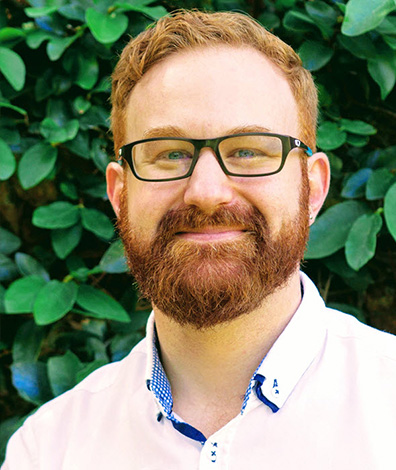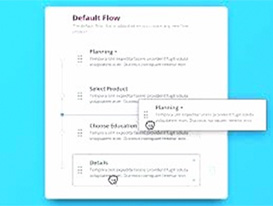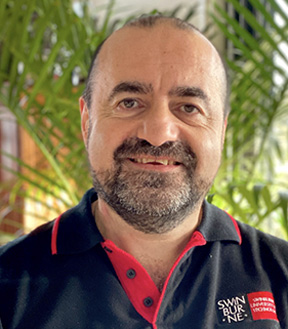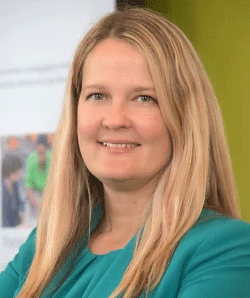AUTOMATIC SPEECH RECOGNITION FROM ECHO360
Echo360’s automatic speech recognition (ASR) transcriptions service – powered by AWS Transcribe – is renowned for its high levels of accuracy and intuitive usability as well as its quick turnaround times. The ASR service translates the recording’s speech into text, giving students the ability to read, search and download the transcription. And the Transcript Editor allows instructors and students to easily and conveniently edit the transcripts for improved accuracy. Echo360’s Alison Maloney sat down with three institutions that are using our transcription service to learn more about their experience.


Some disabilities are invisible.
As an instructor, I know that there may be students in class with ADHD, colour-blindness, autism, tinnitus, dyslexia, partial deafness, low vision and so the list goes on. Some students in my class may have accessibility challenges however more often than not, I don’t know who, and that is intentional. Many students prefer anonymity.
Still, even though we know that students requiring accessibility support are in our classes, many of our digital interfaces aren’t taking these students into account. Do we assume that the offices of disability and accessibility will cater to these students? The students themselves believe it should happen automatically.

Professor Katie Ellis is the Director of the Centre for Culture & Technology at Curtin University and has been researching how students with disabilities use digital media for more than 10 years. About 5 years ago, she started thinking about accessibility features such as media captions as something for everyone. With the arrival of Echo360’s automated speech recognition, Professor Ellis saw an opportunity to further her research.
Professor Ellis discovered that accessibility needs or not, students expected captions. Students are accessing captions on their TV as a regular pattern of behaviour and they feel that if it’s available in entertainment, it should be available for studying and it should be accurate.
The students reported finding the Echo360 automated transcripts useful for many reasons including that it offered them correct spelling of terminology, the transcript brought their attention back into the class when multi-tasking (spouses and children came up a lot!) and that having a transcript to read while reviewing a lecture not only supported retention of information, it also helped them better understand what was happening.


In 2019, The University of Western Australia’s Educational Enhancement Unit (EEU) and the UniAccess team partnered in a small pilot study using the Echo360 transcription feature to support students with registered disabilities. With a simple toggle of a button, Instructors can turn on the transcript for their recorded videos and lectures. Within an hour of the recording, students will have access to a full transcript that enables them to search for key words, follow along when the audio is unclear and even turn off the audio altogether.
For Callan Rose from the EEU, the pilot was both about exploring the automated transcript for students with accessibility needs, as well as how it might impact a broader group of students including mature age, part-time and those from a non-English speaking background. Callan noted that students turned to the transcript when they couldn’t hear what the lecturer was saying. While they couldn’t understand the words being spoken, they were recorded and clearly transcribed. These students described the transcript as a very positive safety net.

Students with accessibility needs prefer the transcript.
Through the pilot of Echo360’s ASR, accessibility technologist Callum Corkill, found that the transcripts could be edited for 100% accuracy (cleaned transcripts) and pushed back for student use in less than 2 days.
When asked, students preferred to have a cleaned transcript over a note taker as it enabled them to take their own notes. What makes Callum’s discovery even more interesting is where students felt cleaned transcripts were preferable to closed captions. Closed captions are written to intentionally include audio details that are missed (e.g. papers rustling) and for many classes, students don’t need the extra information of peripheral sounds that they would want for entertainment.
Since Echo360 released the transcript editor earlier this year, instructors can edit their own transcripts and offer the feature to all students who want it.


Everyone that I spoke to about the Echo360 ASR functionality commented that the transcript creates a mostly accurate base for editing into a cleaned transcripts and/or closed captions massively cutting the time it takes, saving money and most importantly, being able to offer the cleaned transcript to the rest of the class, disability or not.
Since Echo360 released the transcript editor earlier this year, instructors can edit their own transcripts and offer the feature to all students who want it.
For the partners I spoke with, it’s about making sure that all students have access to the content they need. Echo360 knows that an automated transcript is not the same as closed transcripts and we do not pretend to produce them, we do however produce a transcript that can be used for many different purposes.
Watch this video created by UNE, one of Echo360 partner institutions, to see how easy it is now to edit a transcript.

At Swinburne University, a dual sector university, David Yammouni, Learning Technology Designer, Developer and Coordinator, sees potential for the automated transcript even without 100% accuracy. ‘ASR supports students because even if the transcription is not 100% accurate it still provides students with the context and it is quick and easy for either students or instructors to correct technical words’, said David

Here’s a retrieval example I am eager to try


When David showed Echo360’s ASR functionality to Genevieve Smith as something he wanted to encourage her to consider for the accessibility services unit, her response was, ‘what will it take to get this for all students?’.
Genevieve Smith, Acting Director Accessibilities Services at Swinburne University, explained to me that the impetus for turning on ASR university wide is as a response to a Universal Design principle where a variety of content formats needs to be available to improve the learning experience for all students. Regardless of whether or not students choose to register with disability services, it is important to Swinburne that they all receive the same level of educational experience.
‘For students with auditory processing challenges or concentration challenges who may not absorb everything they hear in a lecture, the transcript gives them a written document of everything that was said and having the transcripts to refer back to and decide what to focus on is a fantastic asset’, said Genevieve.
Watch this video to hear more about why Swinburne University turned on the ASR transcription service for all videos published in Echo360.
As well as concern for students with physical accessibility concerns including audio and visual needs, Genevieve has seen an increase in students reporting to the disabilities unit for challenges related to mental health and autism. From everything Genevieve told me when we had the chance to speak, it is clear that she recognises that for students without registered challenges who have stressful days, have had to miss class, have audio from a lecture that isn’t easy to understand or simply prefer to read their content, Echo360’s ASR transcripts fall under the heading of pastoral care.

Case Western Reserve University’s (CWRU) adoption of Echo360’s ASR represents what is possible when students and staff have the same vision for improving access to learning.
When Tina Oestreich, Senior Director of Teaching and Learning Technologies, spoke with Echo360 about ASR she wanted to ensure that accessibility needs for all students were being met. At the same time, the Undergraduate Student Government (USG) was building their own case for transcripts for students who had accommodations.
Speaking with Genevieve Mathieson Kilmer, Senior Instructional technologist at CSWU she said “the students were asking for a tool that would accommodate everyone and particularly those with accessibility needs. When we were able to tell the USG about Echo360’s ASR, they were very excited to convey that to the rest of the student body. We look forward to meeting with them again once we have turned it on everywhere this fall.”
After a successful pilot study in August 2019 reports are beginning to surface that faculty are using Echo360 over other public facing video platforms such as YouTube. They can see the benefit of having all of the tools they need in one place and privacy and security are maintained.
Like many universities, CWRU already provides a service for students who register with the disabilities resources department and Katie Skapin, instructional technologist in charge of the new ASR project can see great benefits. “We hire students to correct the transcripts for students with accommodation needs. We expect the new transcript editor to offer a huge difference in the process and expect it will vastly improve the speed and efficiency of providing clean transcripts for students.”
Adds Genevieve, “we currently use 3rd party services to create closed captions. The current workflow means that the transcripts are not corrected which is a disconnect for students. We see the end result of correcting internally being more consistently beneficial for the students who then have corrected transcripts and closed captions.”
The transcript editor – available to both instructors and students – will enable instructors from all classes to work with students to offer corrected transcripts. Says Katie, “we’re going to see the most success if faculty can correct technical terms” And adds, “students will want to use the search functionality for study”.
There are already a passionate few instructors who have been wondering how to improve accessibility. Echo360’s ASR is now built into the university ecosystem and is fairly easy to use. “I think we’ve all watched something with the captions. Especially if we are in a public place, need to keep the volume down or watching something with a foreign language.
As an instructor, I would turn on ASR. It’s easy to use, it helps improve accessibility of your videos and that is not just for students with accommodations.” finishes Katie.

Ready to learn more about ASR?
APAC & EMEA
(AUS): 1300 324 600
(NZ): 0800 324 600
(ASIA) + 61 8 6180 2799
jwilliams@echo360.com
